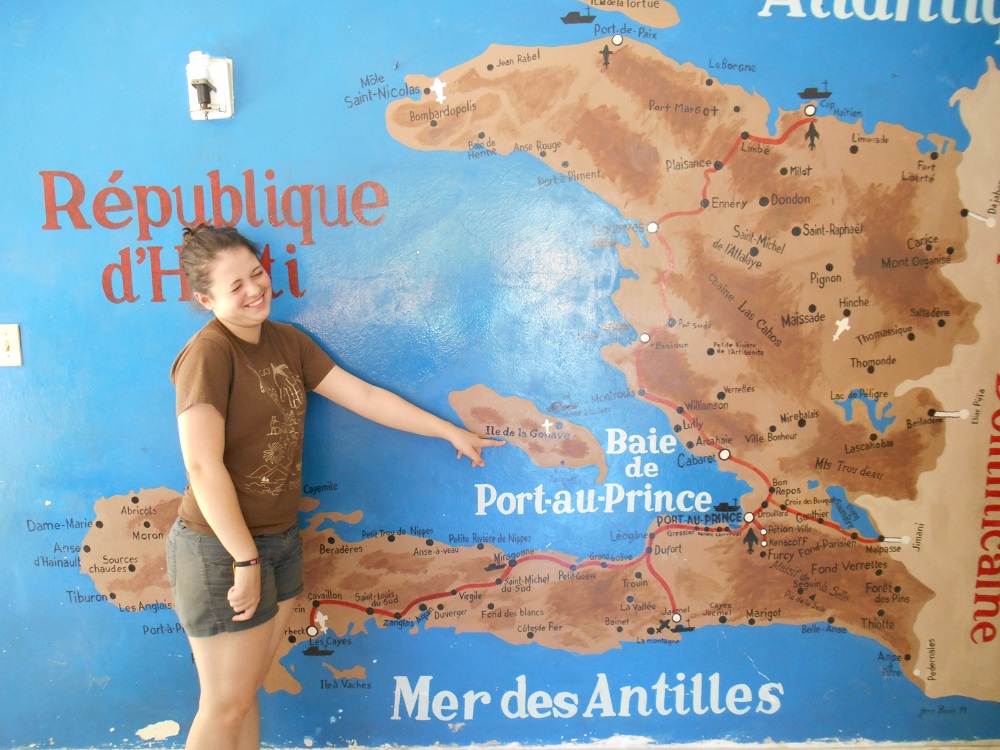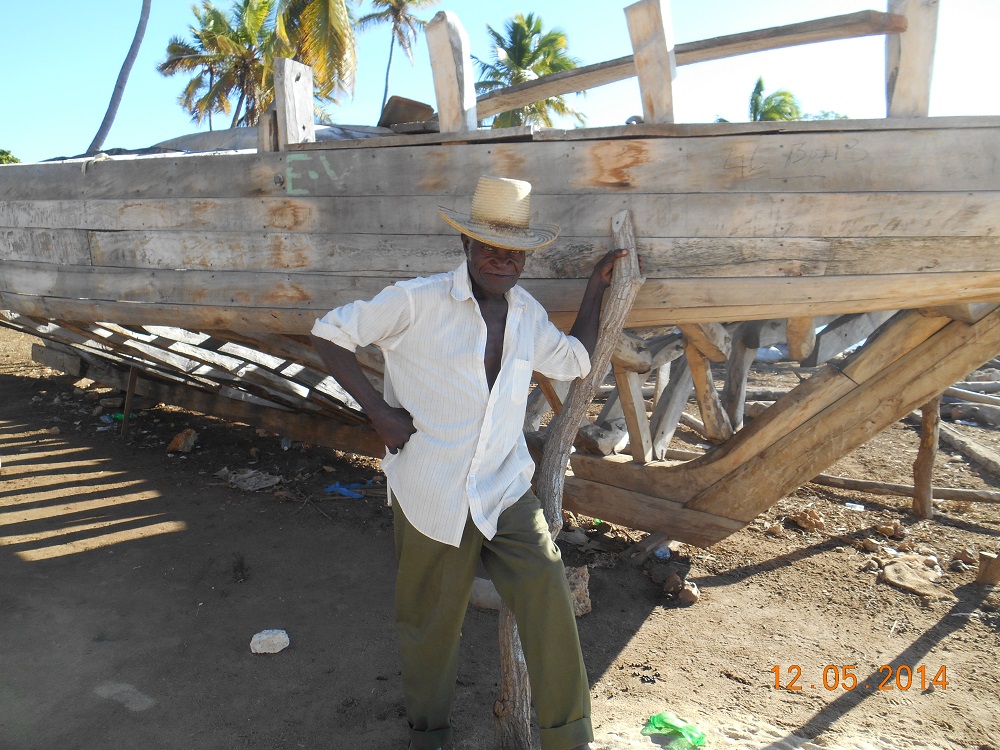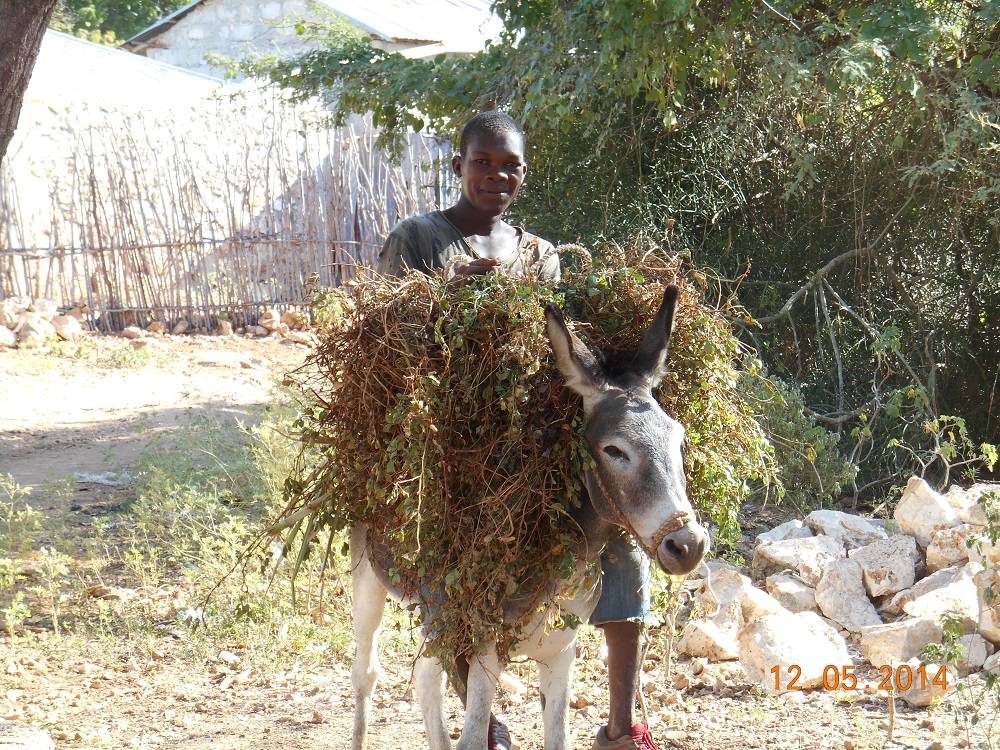|
La Gonave, Haiti
La Gonave, is an island off the coast of Haiti’s mainland which lies between North and South Haiti. La Gonave is an island, about 10 miles by 30 miles in size, with a population of approximately 120,000. The terrain consists of many deforested mountains.
Years ago, La Gonave was used as the place to send unwanted people … criminals, the sick and diseased, and the elderly… this is where you could find “the least of these”. In spite of being known as the “poorest of the poor” the people of La Gonave are very generous and loving. Imagine being considered the “poorest of the poor” when Haiti is the poorest country in the Western Hemisphere! If Haiti is the country that the world forgot, La Gonave is the island that Haiti forgot. In fact, when I tell Haitians that we are working on La Gonave Island they have replied without acceptation, “they really need help over there”. La Gonave is the third poorest place in the world. In spite of this, the people on this island are dignified, gentle and generous. We are proud to be their partners, and pleased to be their friends and determined that they will no longer be forgotten.
Education
It is a challenge to get an education in La Gonave. The enrollment rate for primary school is 67%, and fewer than 30% reach 6th grade. Secondary schools enroll 20% of eligible-age children. Haiti’s literacy rate is 61% which is far below the 90% average rate of Latin America and other Caribbean countries. The country faces shortfalls in teaching supplies and qualified teachers. This is particularly true in rural populations such as La Gonave. The 2010 earthquake exacerbated the already constrained parameters on Haiti’s educational system by destroying infrastructure and displacing more than 50% of the students. International private schools run by Canada, France, United States, and church-run schools educate 90% of students. These schools are managed by communities, religious organizations or NGO’s. The education sector is under the responsibility of the Ministre de I’ Education Nationale et de la Formation Professionnelle (MENFP). The Ministry provides very little funds to support public education. As a result, the private sector has become a substitute for governmental public investment in education as opposed to an addition. The Ministry is limited in its ability to improve the quality of education in Haiti. Although the Constitution requires that a public education be offered free to all people, the Haitian government has been unable to fulfill its obligation. It spends about 10% of its federal budget on the country's elementary and secondary schools.
Estimated annual school costs average $150 (US) per child (including uniform, books and material, and transportation. Most Haitian parents cannot afford tuition for a single child much less additional children.
Without direct efforts to raise the literacy levels of Haiti, Haitians must rely on the donors from the US to help their villages overcome its education and literacy crisis. Education will allow a new generation of Haitians to think of themselves and become positive contributing members within their communities.
You can frequently find children walking around the villages at school time. The reason is not because they don’t want to go to school, but it is because they have no opportunity to get in. Many children are orphanages and/or “Restaveks” (child slaves), and don’t have the opportunity to attend school and get an education. They are slaves to their host family. I asked Mrs. Louisemene, Principle of Port de Bonheur, are there any Restaveks here? Her reply, “Wi Anpil” (yes many).
Sometimes teachers don’t get paid for months. In fact, I’ve visited many schools in La Gonave and the teachers were at least 6 months behind in their wages. In Port de Bonheur they were 18 months behind in Dec. 2014!
Economy
The average wage in Haiti is $2 dollars a day, if you can find a job. Unemployment in Haiti is 80% so finding a job that would pay at least a $1 a day is difficult. While unemployment is at 80% if you would account for all the people that are setting up road side stores, selling drinks to stopped traffic, washing windows of stopped vehicles, or selling goods of any kind you would find that 90% of the people are out there trying to make a living. What about the island La Gonave? According to La Gonave Haiti Partnership the unemployment on the island is a staggering 95%!
On the island most people make a living farming peanuts and corn, and living off the income. However, the harvest is limited due to poor soil and erosion. Another source of income is charcoal. Workers collect branches, set them on fire and smoother them before they completely burn. The result is charcoal and is their almost exclusive source for cooking. Large bags are often seen being loaded for export to the mainland.
Other jobs consist of teachers, fishermen, and other types of farming.
Poverty
The most common view held by Americans is that poverty is the absence of things, and people are poor because they’re lazy and stupid. Americans come to this common view because they have never been to places like Haiti and met the people and worked alongside them. Americans come to that opinion by what they see in America.
Robert Chambers, a British researcher said, “People so close to the edge cannot afford laziness or stupidity. They have worked and worked hard, whenever and however they can. Many of the lazy and stupid poor are dead”.
If your income is $25,000 per year, you are wealthier than approximately 90% of the world’s population! If you make $50,000 you are wealthier than 99% of the world.
Half the people in the world make less than $2 a day.
In America, we tend to gauge whether or not we are wealthy based on the things we don’t have, not the things we do have. If we think we need a bigger house, a nicer car, the latest fashion of clothes then we don’t feel rich.
When we see the American lifestyle as normal then our view of the rest of the world is greatly distorted. It’s because of that view that we don’t see ourselves as wealthy. And because we don’t see ourselves as wealth we don’t believe it is our responsibility to help the poor. Because we think we’re poor! But on a global scale we’re rich.
Richard Stearns said, “I believe that we really can alter the world, and we can only do it one person at a time. And when enough people choose to do this, even a crisis on a global scale can change.”
Hunger
Many people go without food for days.
We feed the children and village each time we go to La Gonave, Port de Bonheur. Once I watched a young child with a huge plate of rice and beans in front of him. I expressed to the principal at Port de Bonheur School that it was too much. She said, “li pral manje l 'tout” (he will eat it all). I asked her, how long has it been since most of these kids eat? Her reply, “jou” (days). Many children show signs of malnutrition. A lot of children we photographed in May 2015 at the Port de Bonheur School had orange hair, or orange colored roots which is a sign of malnutrition.
In Haiti, 1 out of 5 children are underweight. 1 out 10 is acutely malnourished. 1 out of 14 Haitian children die before age 5.
Many children we photographed in May 2015 had orange hair or orange roots, a sign of malnutrition. It is hard for a child to fight off infections when they are so malnourished. A simple bacterial infection could be terminal.
Imagine sitting in school trying to listen to the teacher when you haven't eaten for days. This is reality for many children. The worst part is that they don't know when the next meal is coming.
Haiti's government is known to be very corrupt and there are many people in Haiti that are just as corrupt. But, are they any different than America? Desperation often results in radical behavior, and after many years of that behavior it becomes normal behavior. I'm not sure I would be any different if I were raised in the same conditions. I think about Leonel (read My Story under the About tab) a 12 year old on his own. What if that would have happened to me? We are blessed just to be born in America!
It is overwhelming to see such poverty, you can't imagine where to start or how to help. But, don't think of it as a huge problem, because a donation of just $25 a month can be life changing to one child. A donation or sponsorship trickles down to the family and easies their financial burden.
Haiti needs help in many ways but most of all they need our prayers, and if Jesus was still walking this earth, I believe He would be in places like Haiti caring for the Least of These.
God Bless You!
|






